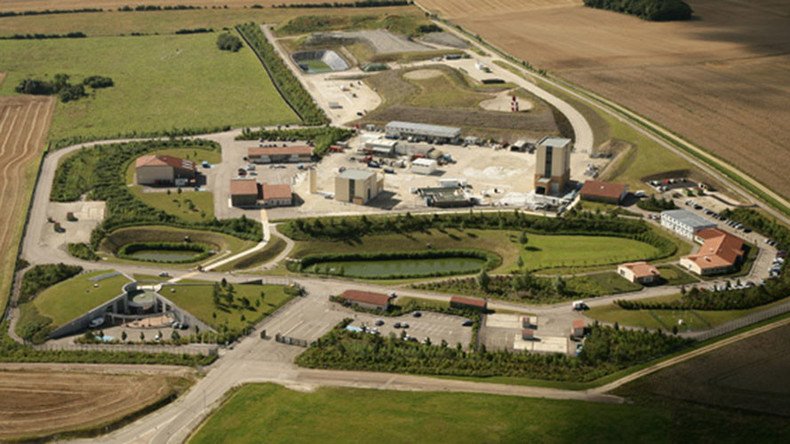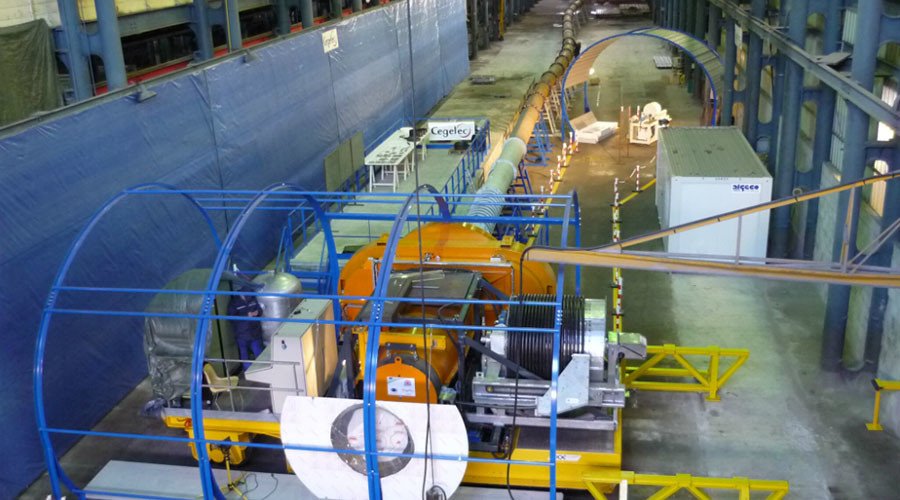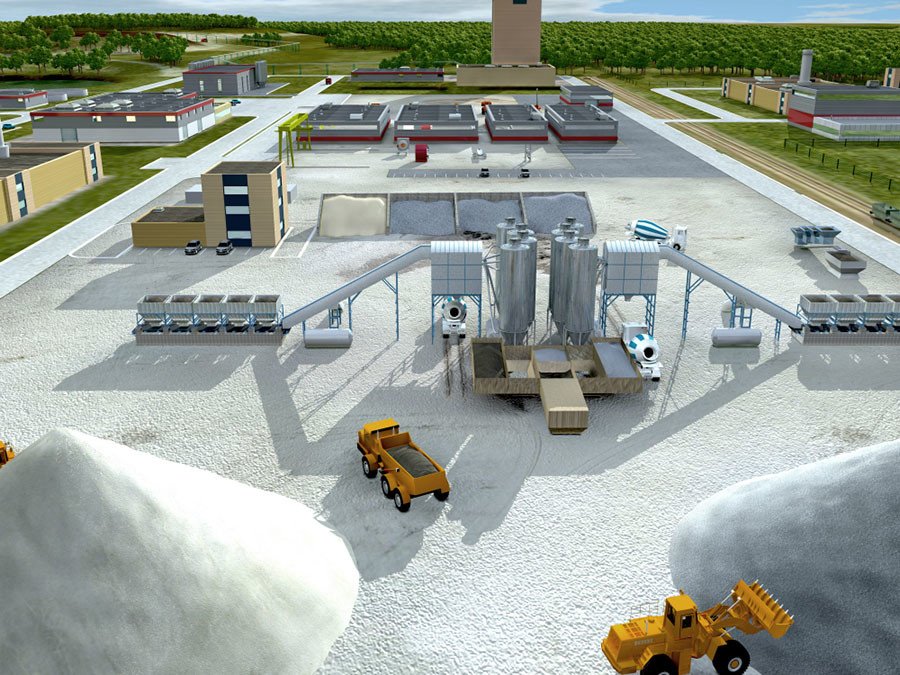‘Underground Chernobyl’: French parliament OKs nuclear waste facility despite protests

A controversial project of an underground facility storing the most hazardous nuclear waste in France has been recently approved by the parliament. Opponents of the law have already called the project an “underground Chernobyl.”
On Monday, the National Assembly adopted the project of a nuclear waste landfill site, named Cigeo (Industrial Centre for Geological Disposal) in the town of Bure, eastern France.
The site will be a part of Meuse/Haute Marne Underground Research Laboratory run by the National Agency for Radioactive Waste Management (Andra). The laboratory conducts studies of the geological formation in order to evaluate its capacity for deep geological repository of radioactive waste.

Andra has repeatedly stated that the deep geological storage project is designed to ensure long term management of France's radioactive waste.
The facility is expected to bury some 80,000 cubic meters of France's most dangerous, highly-radioactive nuclear waste.
Cigeo will “serve as a repository for highly-radioactive long-lived waste generated by France's current fleet of nuclear power plants, from operation to dismantling, as well as from reprocessing of spent fuel from these same plants,” according to the project’s description.

However, anti-nuclear activists don’t believe that the project is safe and sound for local residents or the environment. Opponents have staged numerous protests calling to halt the construction.
The site was dubbed “an underground Chernobyl” by Michèle Bonneton from Europe Ecology – the Greens (EELV) political party.
Former EELV leader Cécile Duflot warned that France will store “80,000 cubic meters of radioactive waste” for millions of years.
Des milliers de personnes réunies à #bure pour résister face au projet mortifère d'enfouissement #nucléaire@sdnfrpic.twitter.com/F1W9iXzkNC
— AndreHatz (@AndreHatz) June 7, 2015
"This project still has a lot of unresolved risks, a green light [to the project] is absurd and dangerous," Corinne Francois, from Coordination BureStop told Le Parisien newspaper.
Rassemblement devant Assemblée Nationale #Cigeo#Burepic.twitter.com/AfhkZP42tu
— Sortir du nucléaire (@sdnfr) July 11, 2016
Ahead of the vote by the National Assembly, groups of anti-nuclear protests gathered in front of the building, calling to halt the law. “Radioactive waste is a dead end”, “No radioactive waste”, read banners held by the activists.
Pause déjeuner #Bure : merci aux policiers de nous avoir retenus (nasse) ce qui a permis à @sdnfr de prolonger ; -) pic.twitter.com/T4nr6VyZFv
— Sandra Regol (@sandraregol) July 11, 2016
Devant l'Assemblée Nationale avec @CecileDuflot qui a eu aussi droit au contrôle d'identité.. pic.twitter.com/N9MYXbMuAL
— Sortir du nucléaire (@sdnfr) July 11, 2016
Earlier this month, dozens of activists staged a protest in the forest next to the planned nuclear waste site in Bure. They were later asked to leave by police officials. The town has about 100 inhabitants.
Chaîne humaine le long de poubelle #nucléaire#CIGEO à #Bure@sdnfr@plutonyck@amisdelaterre@laparisiennelib@libepic.twitter.com/yP2oLFSiNZ
— Cristo (@ChristoMICHE) June 7, 2015
The hazardous waste planned to be buried some 500 meters underground accounts for around 3 percent of the total volume of waste produced by French reactors. The waste will concentrate some 99 percent of the radioactivity and must remain confined for around 100,000 years before it becomes not dangerous to humans.
The whole project is scheduled to function for at least 100 years or more if needed.
— Sortir du nucléaire (@sdnfr) July 8, 2016
The depositing of nuclear waste at the site is scheduled for 2025-2030 if the procedures are further approved by the authorities. The project is due to get an authorization decree in 2018.
The project has been heavily criticized for its price tag – French media speculate it may be about €25 billion ($27 billion). However, some sources claim it will cost up to €35 billion ($38 billion). EELV party member Ronan Dantec dubbed the price of the project sheer “madness.”
READ MORE: At least 1 killed in tunnel collapse at France's planned nuclear waste storage site
Meuse/Haute Marne Underground Research Laboratory was hit by a tragedy back in January this year. One of the tunnels under construction collapsed, killing at least one person and injuring one other.












